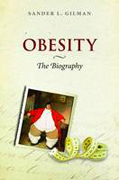
According to the World Health Organization we are in the midst of a global obesity crisis. Is obesity a disease itself or a symptom of underlying physiological or psychological illnesses? Is it a sign of social excess and therefore not a disease in the medical sense at all? Is it really 'new'? Sander L. Gilman, a leading authority in the social and cultural history of the body, presentsa fascinating account of the history of obesity, looking at the changing attitudes towards the body, from regarding it as 'God's temple' to more mechanicaland practical concerns from the Enlightenment onwards. In the eighteenth century obesity was understood as a problem of the affluent; today the affluent are more likely to have a personal trainer and a healthier diet, and it is the poorer classes who are more likely to be overweight. Gilman considers obesity in many contexts - including a chapter on obesity in China and the impact of modernization and Westernization on this very different culture. Taking the issue up to the present day, Gilman examines the wider political and social implications obesity raises, considering whether obesity should be cured by diet or surgery, by psychotherapy or economic improvement, by healthier food choices or by social relocation INDICE: Prologue; 1. From the ancients to Enlightenment dietetics; 2. Dieting and the moral world; 3. The physiologists and the psychologists; 4. Fat inChina; 5. New causes; new solutions; 6. Globesity - from Africa with love; Epilogue
- ISBN: 978-0-19-955797-4
- Editorial: Oxford University
- Encuadernacion: Cartoné
- Páginas: 240
- Fecha Publicación: 31/05/2010
- Nº Volúmenes: 1
- Idioma: Inglés
